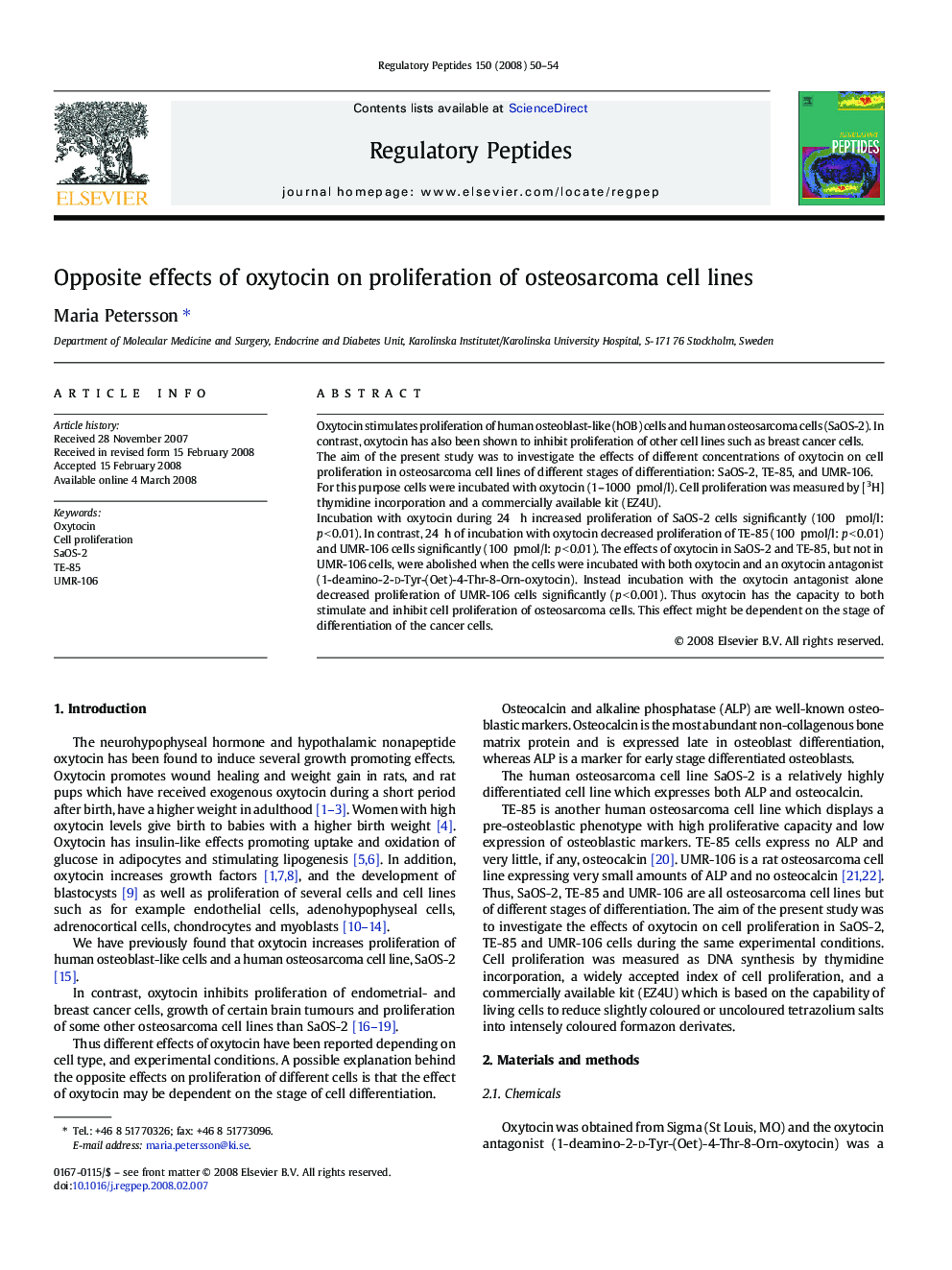| Article ID | Journal | Published Year | Pages | File Type |
|---|---|---|---|---|
| 2023119 | Regulatory Peptides | 2008 | 5 Pages |
Oxytocin stimulates proliferation of human osteoblast-like (hOB) cells and human osteosarcoma cells (SaOS-2). In contrast, oxytocin has also been shown to inhibit proliferation of other cell lines such as breast cancer cells.The aim of the present study was to investigate the effects of different concentrations of oxytocin on cell proliferation in osteosarcoma cell lines of different stages of differentiation: SaOS-2, TE-85, and UMR-106.For this purpose cells were incubated with oxytocin (1–1000 pmol/l). Cell proliferation was measured by [3H]thymidine incorporation and a commercially available kit (EZ4U).Incubation with oxytocin during 24 h increased proliferation of SaOS-2 cells significantly (100 pmol/l: p < 0.01). In contrast, 24 h of incubation with oxytocin decreased proliferation of TE-85 (100 pmol/l: p < 0.01) and UMR-106 cells significantly (100 pmol/l: p < 0.01). The effects of oxytocin in SaOS-2 and TE-85, but not in UMR-106 cells, were abolished when the cells were incubated with both oxytocin and an oxytocin antagonist (1-deamino-2-d-Tyr-(Oet)-4-Thr-8-Orn-oxytocin). Instead incubation with the oxytocin antagonist alone decreased proliferation of UMR-106 cells significantly (p < 0.001). Thus oxytocin has the capacity to both stimulate and inhibit cell proliferation of osteosarcoma cells. This effect might be dependent on the stage of differentiation of the cancer cells.
